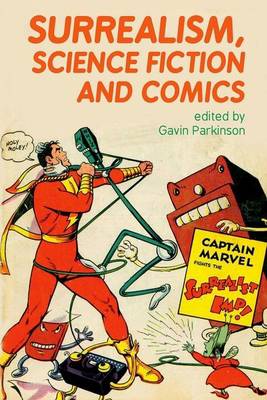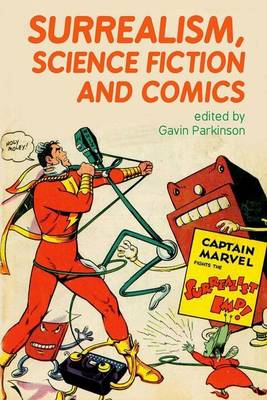
- Retrait gratuit dans votre magasin Club
- 7.000.000 titres dans notre catalogue
- Payer en toute sécurité
- Toujours un magasin près de chez vous
- Retrait gratuit dans votre magasin Club
- 7.000.0000 titres dans notre catalogue
- Payer en toute sécurité
- Toujours un magasin près de chez vous
Surrealism, Science Fiction and Comics
111,95 €
+ 223 points
Description
Although the self-definition of Surrealism and the initial defining of science fiction as a genre both took place in the 1920s and the links between the two are manifest, no full study has appeared till now on Surrealism and SF. Across ten original essays, Surrealism, Science Fiction and Comics looks at how the Surrealist movement in France and the USA used, informed, contributed to, and criticised SF from that moment, whilst including discussion of the related genre of comics. Among its aims are a reassessment of Jules Verne in the light of Surrealism and an analysis of the debate in the 1950s on the 'new' Anglo-American literature arriving in France. This received, in fact, a mixed reception from the Surrealists of that decade even though writers and intellectuals close to the movement in the 1920s were directly responsible for its success. The book includes further essays on the subsequent impact of Surrealism on SF novelists J.G. Ballard and Alan Burns, and features essays that argue for Salvador Dalí's closeness to SF in the 1960s and his disagreement with the earlier scientific romance defined by Verne. The chapters that bring in comics range from theoretical discussions of the relation between the original comic strips of Rodolphe Töpffer and the key Surrealist technique of automatism, used in art and writing, through the cybernetic implications of the proto-SF Surrealist ciné-roman 'M. Wzz...' of 1929, which has never discussed in any detail before, to the 1948 Vache paintings by René Magritte, inspired by Louis Forton's strip Les Pieds nickelés. This pioneering set of essays shows how Surrealism from the 1920s to the 1970s did not just receive and adapt SF but impacted the genre in its later manifestations.
Spécifications
Parties prenantes
- Editeur:
Contenu
- Nombre de pages :
- 288
- Langue:
- Anglais
- Collection :
- Tome:
- n° 50
Caractéristiques
- EAN:
- 9781781381434
- Date de parution :
- 05-05-15
- Format:
- Livre relié
- Format numérique:
- Genaaid
- Dimensions :
- 157 mm x 234 mm
- Poids :
- 439 g

Les avis
Nous publions uniquement les avis qui respectent les conditions requises. Consultez nos conditions pour les avis.





